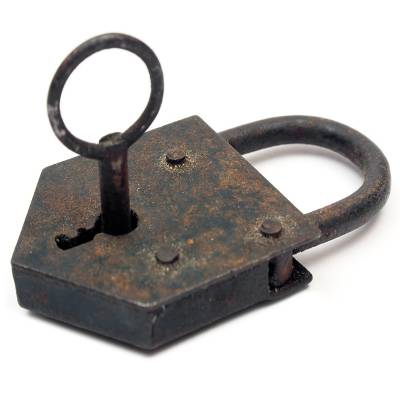SMART Blog
H.A.C.K. Your Way to Strong Password Management
 It's a network security best practice to regularly switch out old passwords for new ones. However, if you're the one changing and distributing the new passwords, you may face resistance from office workers that see this mandate as an inconvenience. To make sure everyone is onboard, you will need to preach the importance of password security.
It's a network security best practice to regularly switch out old passwords for new ones. However, if you're the one changing and distributing the new passwords, you may face resistance from office workers that see this mandate as an inconvenience. To make sure everyone is onboard, you will need to preach the importance of password security.
Switching out passwords is necessary in order to prevent devastating security breaches. It's not something that can be opted out of because someone doesn't like it. The only way for this password security measure to work is if everyone does it, since when it comes to protecting your network's data, your security is only as strong as your weakest link.
One easy way help your staff remember why it's important learn new passwords, is to use the acronym H.A.C.K. The word "hack" can mean a security breach, and it can also mean a person that is dull. Both of these definitions work when trying to use HACK to keep your hacks from getting hacked.
Hackers
A working password in the hands of a hacker will lead to a security breach where the hacker will have free reign on your network and be able to steal your company's sensitive information. Two strong measures that will prevent a hacker from getting their hands on a working password is to 1) regularly switch out your passwords, and 2) use passwords that are complex with numbers, letters, and characters in nonsensical combinations that would be impossible to guess.
Accountability
When an employee logs onto the network using their unique password, the network administrator is then able to track all of their activity in order to keep them accountable. Since everybody has a unique password, everybody's activities can be tracked. It's important to keep people accountable with their network usage, and the longer a company goes without switching their passwords will increase the chance that a password can fall into the hands of the wrong person.
Confidentiality
Passwords are distributed with an understanding that they're confidential information not to be exchanged with anyone else. Most employees understand the confidential nature of their network password: It's common sense. That doesn't mean every employee knows the best practices to keep their passwords private, however. A common way that employees break company confidentiality with poor password management is to write it down on a Post-it note and stick it to the computer monitor. Switching out passwords regularly will help curve the sloppy habits of employees that don't take password confidentiality seriously.
Keeping the Peace
Poor password management can lead to someone falsely being accused of inappropriate network activity because someone else used their password, or an employee being disciplined because they broke confidentiality expectations, or even a network being hacked. All of these are big headaches and drama-filled situations that can easily be prevented with strong password management. If an employee gives you any lip for having to switch out their password, tell them it's to prevent this kind of drama and you're just trying to keep the peace.
Switching out old passwords for new ones is just one best practice you can implement to keep your passwords safe. There are several other practices and resources that the IT professionals at SMART Services can inform you about that will help prevent major and minor network security breaches. To learn more about network security solutions, like our Unified Threat Management tool, or how to safely keep track of all of your passwords using resources like LastPass, RoboForm, KneePass, and more, then reach out to us at 586 258-0650 .




Comments